Related Research Articles

Moravia is a historical region in the east of the Czech Republic and one of three historical Czech lands, with Bohemia and Czech Silesia.

Brno is a city in the South Moravian Region of the Czech Republic. Located at the confluence of the Svitava and Svratka rivers, Brno has about 380,000 inhabitants, making it the second-largest city in the Czech Republic after the capital, Prague, and one of the 100 largest cities of the EU. The Brno metropolitan area has more than 600,000 inhabitants.

The Treaty of Lunéville was signed in the Treaty House of Lunéville on 9 February 1801. The signatory parties were the French Republic and Holy Roman Emperor Francis II. The latter was negotiating both on his own behalf as ruler of the hereditary domains of the Habsburg Monarchy and on behalf of other rulers who controlled territories in the Holy Roman Empire. The signatories were Joseph Bonaparte and Count Ludwig von Cobenzl, the Austrian foreign minister.

Austrians are the people of Austria. The English term Austrians was applied to the population of Habsburg Austria from the 17th or 18th century. Subsequently, during the 19th century, it referred to the citizens of the Empire of Austria (1804–1867), and from 1867 until 1918 to the citizens of Cisleithania. In the closest sense, the term Austria originally referred to the historical March of Austria, corresponding roughly to the Vienna Basin in what is today Lower Austria.

The Bancroft treaties, also called the Bancroft conventions, were a series of agreements made in the late 19th and early 20th centuries between the United States and other countries. They recognized the right of each party's nationals to become naturalized citizens of the other; and defined circumstances in which naturalized persons were legally presumed to have abandoned their new citizenship and resumed their old one.
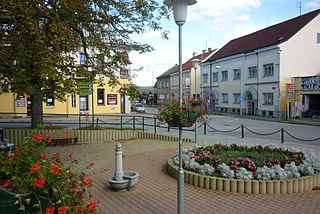
České Velenice ) is a town in Jindřichův Hradec District in the South Bohemian Region of the Czech Republic. It has about 3,500 inhabitants. It lies on the border with Austria and shares the railway and pedestrian border crossing with Gmünd.

German nationality law is the law governing the acquisition, transmission and loss of German citizenship. The law is based on a mixture of the principles of jus sanguinis and jus soli. In other words, one usually acquires German citizenship if a parent is a German citizen, irrespective of place of birth, or by birth in Germany to parents with foreign nationality if certain requirements are fulfilled. Naturalization is also possible for foreign nationals after six to eight years of legal residence in Germany.
Denaturalization or citizenship deprivation or citizenship revocation is an involuntary loss of citizenship. Denaturalization can be based on various legal justifications. It can be a penalty for actions considered criminal by the state, often only related to nationality law or the naturalization process, such as the original act of naturalization is found to be invalid, for instance due to an administrative error or if it had been based on fraud or bribery.

Nationality law in the Republic of Austria is based on the principle of jus sanguinis. In other words, one usually acquires Austrian citizenship if a parent is Austrian, irrespective of place of birth.
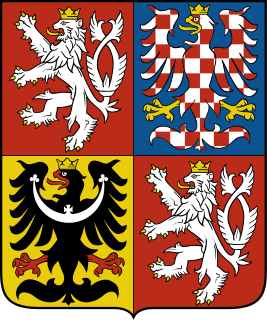
The citizenship law of the Czech Republic is based on the principles of jus sanguinis or "right by blood". In other words, descent from a Czech parent is the primary method of acquiring Czech citizenship. Birth on Czech territory without a Czech parent is in itself insufficient for the conferral of Czech citizenship. Every Czech citizen is also a citizen of the European Union. The law came into effect on 1 January 1993, the date of the dissolution of Czechoslovakia, and has been amended in 1993, 1995, 1996, 1999, 2002, 2003, and 2005. Since 1 January 2014, multiple citizenship under Czech law is allowed.

Hungarian nationality law is based on the principles of jus sanguinis. Hungarian citizenship can be acquired by descent from a Hungarian parent, or by naturalisation. A person born in Hungary to foreign parents does not generally acquire Hungarian citizenship. A Hungarian citizen is also a citizen of the European Union.

Belarusian citizenship is membership in the political community of the Republic of Belarus. Belarusian citizens also hold citizenship in the Union State of Russia and Belarus.
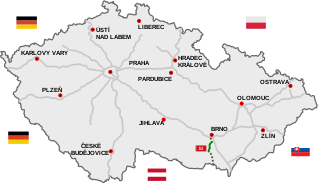
D52 highway, formerly Expressway R52 is a highway in the South Moravian Region of the Czech Republic, currently leading from Modřice, about 7 km (4.3 mi) south of Brno, to Pohořelice, parallel to the Highway D2. It forms part of the European road E461.

The Brno death march began late on the night of 30 May 1945 when the ethnic German minority in Brno was expelled to nearby Austria following the capture of the city by the Allies during World War II. Only about half of expellees actually crossed the border. Thousands of people were held in the provisional camps in the border area. While some Germans were later allowed to return to Brno, hundreds of others fell victim to diseases and malnutrition in the following weeks. The number of fatalities caused by the march and imprisonment is disputed as it became part of propaganda: the estimates range between 500 and 8,000.
Holly Dale is a Canadian filmmaker and television director. Over the course of her career, Dale has worked in the Canadian film and television industry as a director, producer, writer, and editor. Although she has completed solo projects, the majority of Dale's work has been in collaboration with her former classmate, Janis Cole. The Thin Line (1977), P4W: Prison for Women (1981), and Hookers on Davie (1984) are some of their most recognized projects. Dale's work has been featured in festivals around the world including North America, Europe, and Australia. She has also received award nominations and wins, including a Gemini Award in 1982 for the Best Theatrical Documentary for P4W: Prison for Women.
Multiple/dual citizenship is a legal status in which a person is concurrently regarded as a national or citizen of more than one country under the laws of those countries. Conceptually, citizenship is focused on the internal political life of the country and nationality is a matter of international dealings. There is no international convention which determines the nationality or citizenship status of a person. This is defined exclusively by national laws, which can vary and conflict with each other. Multiple citizenship arises because different countries use different, and not necessarily mutually exclusive, criteria for citizenship. Colloquially, people may "hold" multiple citizenship but, technically, each nation makes a claim that a particular person is considered its national.
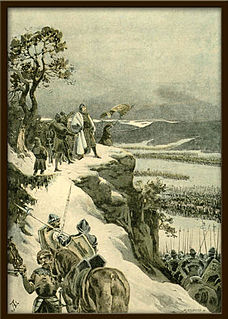
The Bohemian War (1468–1478) began when the Kingdom of Bohemia was invaded by the king of Hungary, Matthias Corvinus. Matthias invaded with the pretext of returning Bohemia to Catholicism; at the time, it was ruled by the Hussite king, George of Poděbrad. Matthias' invasion was largely successful, leading to his acquisition of the southern and eastern parts of the country. Its core lands however, centered on Prague, were never taken. Ultimately both Matthias and Poděbrad would proclaim themselves king, though neither ever acquired all the necessary subordinate titles. When Poděbrad died in 1471, his successor Vladislaus II continued the fight against Matthias. In 1478, the war ended following the treaties of Brno and the Olomouc. Upon Matthias' death in 1490, Vladislaus would succeed him as king of both Hungary and Bohemia.
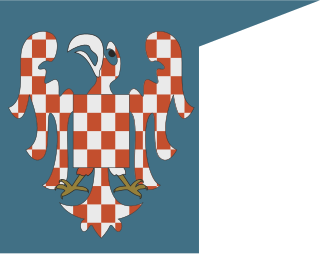
The Margraviate of Moravia was one of the Lands of the Bohemian Crown within the Holy Roman Empire existing from 1182 to 1918. It was officially administrated by a margrave in cooperation with a provincial diet. It was variously a de facto independent state, and also subject to the Duchy, later the Kingdom of Bohemia. It comprised the historical region called Moravia, which lies within the present-day Czech Republic.
Slovaks in Austria have a history dating back to the early centuries of the Common Era. Currently, there are 35,326 Slovaks in Austria as of 2016. Large communities of Slovaks can be found in Vienna and Lower Austria, with a smaller community in Styria.
References
- ↑ Dale and Cole, p. 212.